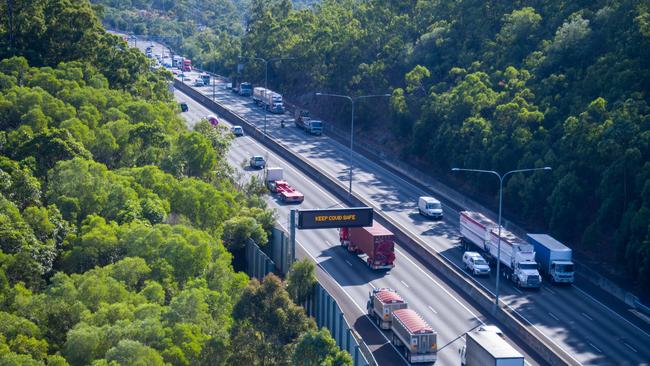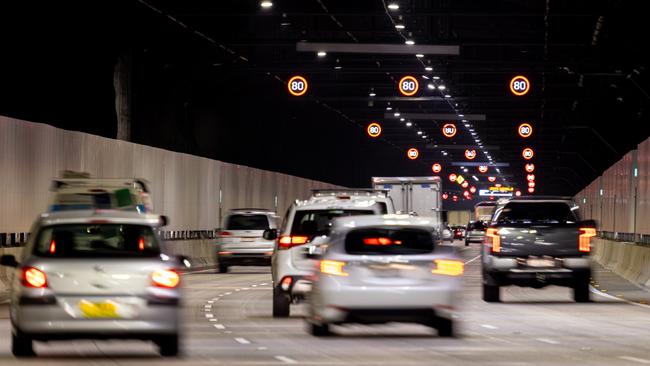Australia’s biggest cost of living concern revealed in new data
New data has revealed Australians are overwhelmingly concerned about the soaring cost of this one item.
NewsWire
Don't miss out on the headlines from NewsWire. Followed categories will be added to My News.
New data reveals how Australians’ habits and concerns have changed since the coronavirus pandemic hit.
A lot has changed in two years, and Australians are struggling to find their feet again amid soaring living expenses and the ongoing effects of Covid-19.
Research from one of Australia’s largest toll road providers has revealed how our spending and commuting habits have changed since the pandemic began.
As restrictions eased, Transurban conducted a survey of thousands of Australians which interrogated how habits and concerns have shifted around costs, work and commuting.

The Urban Mobility Trends report shows the single biggest cost of living concern for Australians is fuel.
The price of petrol was ranked as the biggest concern across all age groups, followed by groceries, electricity, insurance and rent/mortgage payments.
Interestingly, people from 18 to 59 years old ranked groceries as the second biggest concern, while over 60s said they were more worried about electricity expenses.
Regardless of age or location, the data confirms women are more concerned about the rising cost of essential household expenses than men.
Despite the prevailing stress about climbing fuel prices, the research divulges that most Australians don’t pay much attention to the price of fuel when making short trips or commuting to work.
In fact, the toll road provider found a quarter of Australians have changed their chosen mode of transportation to work, with most making the switch from public transport to cars.
Changes to the commute
Transurban CEO Scott Charlton said the report provides a clearer picture of how and why people are travelling as cities become busier.
“As people return to the workplace in larger numbers and population growth returns, it’s an opportune time to ask ourselves what we want our commutes to look like in the future,” he said.
After two years of working remotely or on alert, most people have now returned to the office for the bulk of the work week.
Brisbane residents have displayed the most enthusiasm for the office by commuting to their workplaces 3.7 days a week on average, according to the data.
Workers in Sydney and Melbourne have been less keen, clocking in 3.4 days on average.
“It appears that many people plan to stick with their car if they’re heading into the workplace a couple of days less than they used to,” Mr Charlton said.
“There could be a few reasons for this, including increased flexibility and ongoing public health advice around wearing masks on public transport.”
Changes to work
As the Transurban CEO notes, flexible work arrangements have continued despite the nationwide push to return to the office.
71 per cent of those surveyed said they were now enjoying access to varied start and finish times at work, which is nearly double the number of people who reported having those perks in January.
Sydney topped the bill of flexible workers, with 73 per cent of the city’s residents claiming flexible hours. Melbourne followed suit with 71 per cent of workers, while Brisbane trailed with 68 per cent.

However, Transurban’s traffic data reveals not enough people are taking advantage of those flexible working hours and have instead returned to their pre-pandemic work routines.
Peak hour congestion has returned to the cities, both in the morning and the evening, as a result.
The Transurban CEO said people were missing an opportunity to enjoy shorter commute times by adjusting their schedules.
“We’re already seeing a return to traditional peak period congestion on our network,” Mr Charlton said.
“Transport congestion is one trend we want to leave behind, so as people settle into new routines and adjust their commuting habits, this research shows there is significant potential for flexible working to help flatten the congestion curve.”
Originally published as Australia’s biggest cost of living concern revealed in new data


